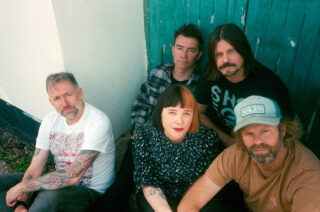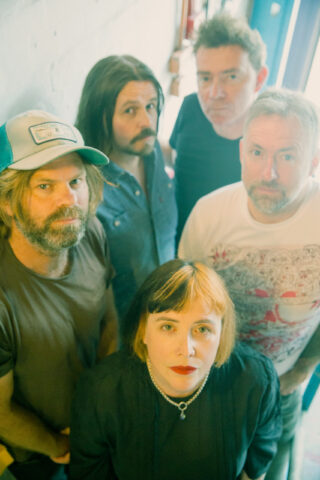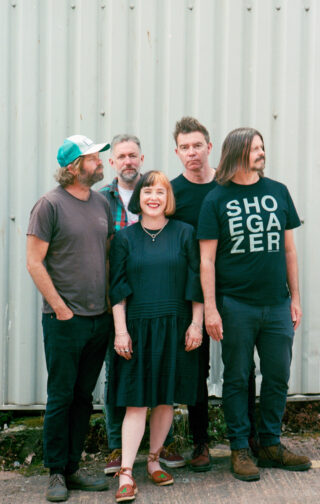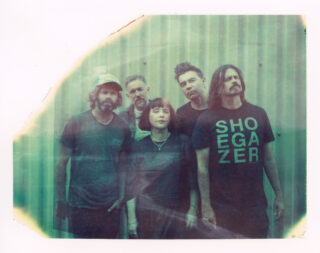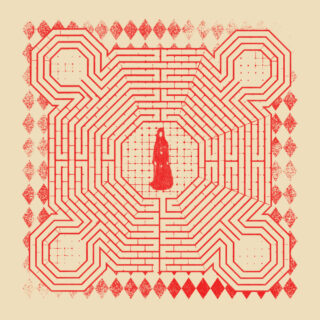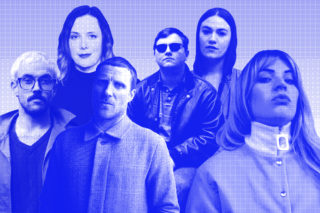Skye Butchard: Hi Rachel. You’re rehearsing for Glastonbury at the moment, right?
Rachel Goswell: Yeah, we’re rehearsing for the rest of this week. We’re doing a warm-up show in Exeter on Saturday, which is fairly local to me. I’ve been trying to do an Exeter gig since we came back, really. It’s taken us nine years, but it seemed like the perfect opportunity to do it the day before Glastonbury. Hopefully it will be alright…
SB: How’s it been preparing for it?
RG: It’s really nice to finally be at the stage where we can be in a room together and play the songs again. We did a handful of festival dates last year. It’s nice to get to this point where everything’s announced, because we’ve been sitting on it for a while. What will be will be.
SB: Which of the new songs are you excited to share?
RG: I really like ‘Shanty’, the opening track on the album, which has the arpeggiator, and ‘Chained to a Cloud’. I have to remember what their actual titles are now. Our working title for that one was ‘Chimey’ for nearly three years. I particularly love those two because they’re a bit different. They’ll be more challenging to work out live because we’ll need extra equipment to do those. At Glastonbury, it’s only an hour-long set, so we might try a couple of the other ones in the warm-up show. The people coming to that show are the diehard Slowdive fans. It’ll feel nice to do something different for them.
SB: Have you gotten to know any of your superfans? I guess they were the people asking you to come back in the first place.
RG: Yeah, I’ve gotten to know some of them over the years, and a handful of them have become friends. It’s generally people close in age for me, but having common ground outside of music. I think as you get older it’s more difficult that you really connect with people a cellular level, at least for me anyway. I’ve always found it difficult to make friends. As an adult, having always been in bands, it’s hard to make genuine friendships that go beyond the music.

SB: When Loud And Quiet last interviewed you, it was just before the reunion show at Primavera Sound. How do you look back on that moment in time, when there were plans to make new music but it was up in the air what would actually happen?
RG: It’s been a remarkable few years, for all of us. Nine years is a long time in anybody’s life, and so many things can change. Slowdive still existing now [means] we’ve gone past the original few years of the band.
I’ve got brilliant memories of when we first came back, this whole excitement around Slowdive, having never experienced anything like that before – not on the level that it was. The first time around I was fairly drunk and stoned through a lot of it. I just felt grateful for the opportunity. I appreciate it more the second time around, it keeps you young in a way. It’s such a different lifestyle, and certainly a few years ago I wouldn’t have imagined I’d be doing this now.
SB: Your early records were very teenage, and that’s something that’s loved about them, but what were you pulling from on this record, in comparison to when you were younger?
RG: You have a rich tapestry of experiences as you age. I still remember thinking when I was in my early 20s that I knew it all, much more than my parents did, all those cliches that you get from your parents and older people. You look back and think, ‘Yeah, well they were kind of right’. Life is ever-changing. It can throw so many different things at you.
I find it interesting to reflect back at Rachel at the age of nineteen, when I had not much of a care in the world. I didn’t become a mother until I was 39. That was obviously life-changing. In a lot of ways, as my son’s got additional needs. It was more of a shift for me than I was expecting, but nothing prepares you for parenthood anyway. I think I have more of an appreciation for life than I did when I was a 20-year-old. I appreciate older people, their experiences and their wisdom.
I spoke to someone yesterday who said “The last time I saw you was in 1992 – that was a lifetime ago.” Actually, it was several lifetimes ago.




